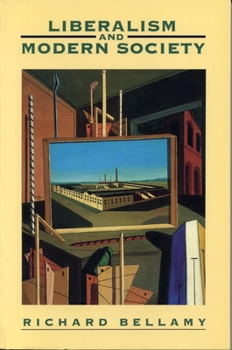Liberalism and Modern Society: A Historical Argument
Select Format
Select Condition 
Book Overview
This major new book is a wide-ranging analysis of the emergence and development of liberalism, from the mid-nineteenth century to the present.
Bellamy examines the evolution of liberal ideas in Britain, France, Germany, and Italy, discussing the work of Mill, Green, Durkeim, Weber, and Pareto, among others. He situates their theories firmly within their respective historical contexts, illustrating in this way the contingency of many of the social and moral assumptions underlying liberal thought. For modern societies have undergone profound changes in the course of the last century, and Bellamy argues that these changes have severely undermined many of the key tenets of liberalism.
The final part of the book examines critically the elaboration of liberal ideas in the work of contemporary political philosophers such as Hayek, Nozick, and Rawls. Bellamy shows how the liberalisms of these writers rest on social views and moral intuitions that are now anachronistic and untenable. He maintains that only a democratic liberalism built on realistic foundations can provide a plausible political theory in the complex and pluralist societies of the modern world.





